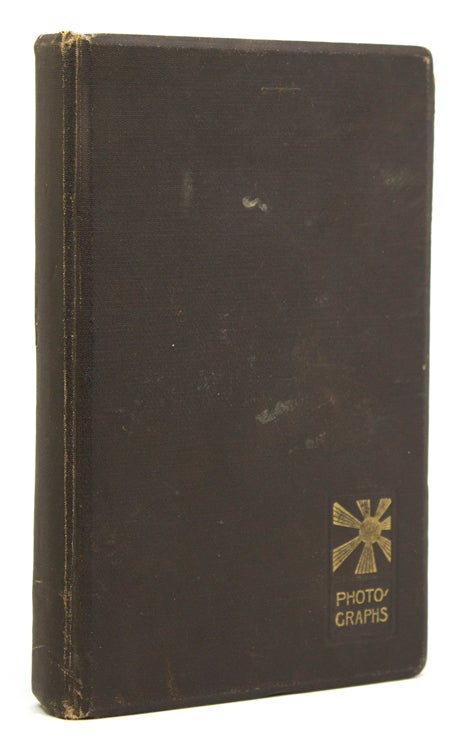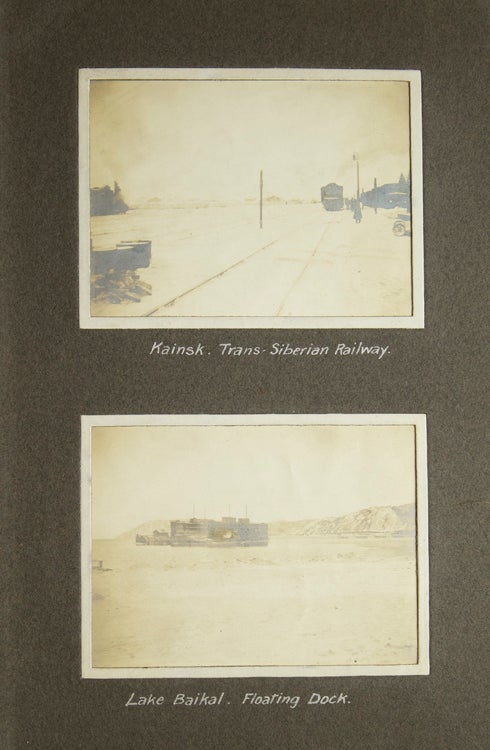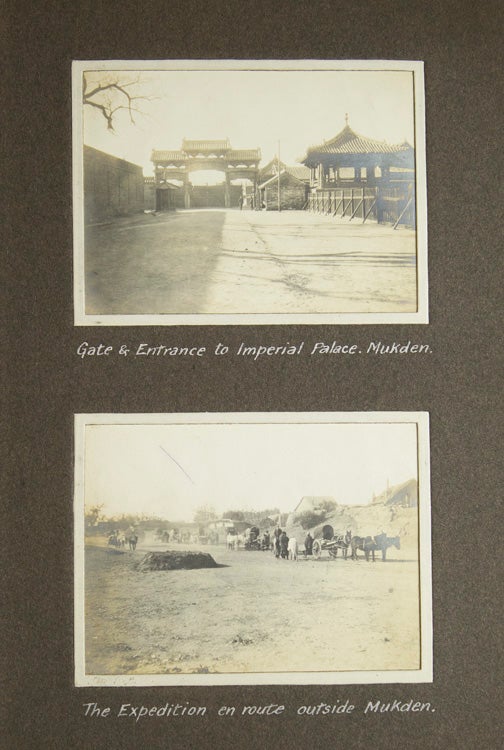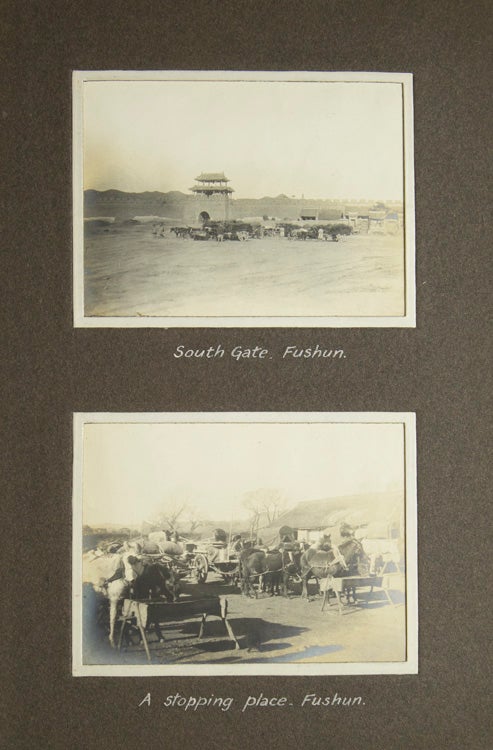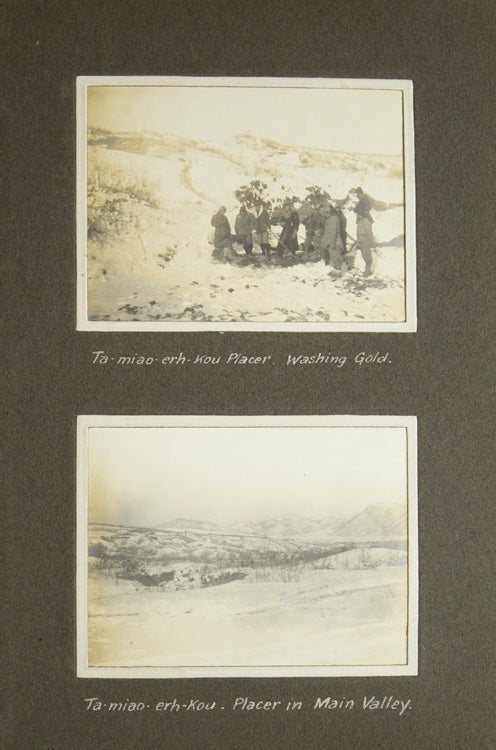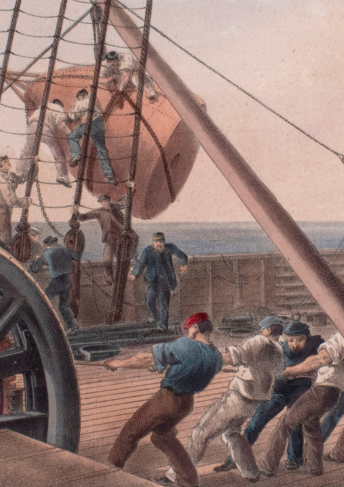RARE PHOTOGRAPHS OF NORTH CHINA
Bound volume containing 48 original photographs of mining activities in northern China, and transport there on the Trans-Siberian Railroad and through Manchuria.
c.1908.
Price: $6,000.00
About the item
Photographs measuring 2-3/4 x 3-3/4 in. some a little faded. Manuscript captions in white ink in an album with 12 leaves. 1 vols. 8vo. RARE PHOTOGRAPHS OF NORTH CHINA. Contemporary black cloth album.
Item #304603
An excellent group of images documenting a tour though the little known, and rarely photographed, mining districts of northern China. The photographer was likely attached to the Anglo-French Quicksilver and Mining Concession which had claims in the Guizhou province. Among the photographs is an image of Henry Brelich, who was the chief engineer of the Concession.
Commencing at Kainsk, the photographer travelled on the Trans-Siberian Railway to Lake Baikal, Harbin, then via Mukden to the coal mining towns of Fushun (the coal capital), Kang-shan and Tung-Hwa. There are shots of mines at Ta-miao-erh-kou, Tung-hua, Ta-maio-kou and Fushun, as well as "Korean Miners at Chi-tao-kou", "Ta-miao-erh-kou Placer, Washing Gold", and "Ssu-tao-chiang coal pits"
There are shots of the expedition in action: "Crossing the Hun - tributary of the Yalu", "The Expedition en route outside Mukden." "An accident en route", a group shot of the servants. Then some images of local interest such as street scenes at Mukden and Tung-hwa, the "Shrine outside Ling-kai", "Inn at Kwei-tai-mao-tze", a Manchurian farm. Other images include the floating dock at Lake Baikal, views of the Hun Valley, the Kao-li-mutze-ling pass, and the Loh chuen valley.
The group provides a fascinating insight into this remote part of China at the beginning of the twentieth century. The Anglo-Chinese Treaty of 1902 paved the way for English developers as it included a revision of existing mining regulations. However, the new regulations, which didn't come into effect until the end of 1907, were such that it proved nearly impossible for any foreign firm to gain a foothold, making this expedition one of the very few to gain a concession.

